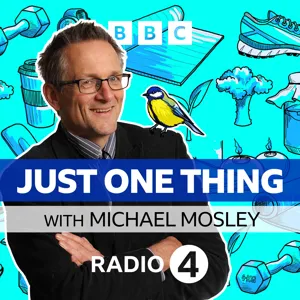Podcast Summary
Incorporating a cold shower into your daily routine can have numerous health benefits: Boosts immune system, combats stress, keeps you alert, enhances mood, and strengthens cardiovascular health
Incorporating a cold shower into your daily routine could have numerous health benefits. According to doctor Michael Mosley from the BBC World Service podcast "Just One Thing," taking a cold shower can help combat stress, keep you alert, and boost your immune system. This is supported by growing evidence suggesting that regular cold water swimming can improve mood, lower stress, enhance cardiovascular health, and strengthen the immune system. While it may be challenging at first, especially for those who enjoy hot showers, starting with short durations and gradually increasing the length can make the experience more manageable. So, consider giving it a try and join the growing community of cold shower enthusiasts. Remember, small changes can lead to significant improvements in your overall well-being.
Exercise your immune system with cold showers or swims: Regularly exposing yourself to cold water can reduce sick days by boosting immune function
Regularly exposing your body to cold water, whether through cold showers or cold swims, can have positive effects on your immune system. This is due to the body's stress response, which initially causes an increase in heart rate, adrenaline, and hyperventilation. However, with continued exposure, the body adapts, and the stress response becomes more muted. This controlled exposure to stress can lead to a boost in immune function, as shown in a study where volunteers taking cold showers took 30% fewer sick days than a control group. The benefits appear to come from skin cooling rather than deeper tissue cooling, and the optimal duration for these benefits is a shorter immersion.
Cold showers: A brief dip with potential benefits: Regular cold showers may improve breathing control, lower heart rate, and potentially reduce inflammation, contributing to better mood and overall health
Exposing yourself to cold water, such as through cold showers, for around 1 to 2 minutes can have numerous benefits. This brief immersion triggers the body's fight or flight response, which can lead to increased heart rate, breathing difficulties, and the release of stress hormones. However, with repeated exposure, known as habituation, the body adapts, leading to improved breathing control, lower heart rate, and possible anti-inflammatory effects. The science behind these benefits is still in its infancy, but anecdotal evidence suggests that cold water exposure can improve mood and potentially reduce inflammation, which is linked to various health conditions. While it's not yet clear if cold showers can protect against COVID-19, they may be worth trying as a potentially beneficial and low-risk intervention.
Gradually introduce cold showers for optimal benefits: Approach cold showers with caution, start gradually, and stay informed about ongoing research for optimal benefits
Cold showers, like any new health practice, should be approached with caution and gradual implementation. As tropical animals, our bodies are not naturally adapted to cold temperatures, and sudden exposure can increase breathing, heart rate, and blood pressure. To minimize negative effects and maximize potential benefits, it's recommended to start with a warm-up and gradually introduce cold showers in a controlled manner. Additionally, ongoing research in the field aims to identify the active ingredients of cold therapy, such as cold immersion or partial body cooling, to make these benefits more accessible to a wider population. The potential benefits of cold showers include improved immune system and overall well-being, but it's important to remember that everyone's experience may vary. As for the personal experiment, Sandia reported feeling fresher after having cold showers, especially when finishing off her shower with a cold blast. She managed to increase her cold shower duration to almost a minute and plans to continue incorporating it into her routine. However, she emphasizes the importance of not plunging into icy water without proper adaptation. In summary, the takeaway is to approach cold showers with caution, gradually introducing them into your routine, and to stay informed about ongoing research in the field to fully understand the potential benefits.
Exploring new experiences for better health: Trying new things like cold showers may improve wakefulness and potentially boost immune system, but more research needed.
Incorporating new experiences into your daily routine, such as trying cold showers, can have potential benefits for your body and overall well-being. While the scientific evidence may not be definitive, anecdotal reports suggest that it can help wake you up and possibly boost your immune system. Tune in to BBC Sounds for more episodes of "Just One Thing" to discover other simple practices that could make a positive impact on your life. Additionally, check out the podcast "Life Changing" for inspiring stories of people who have overcome extraordinary challenges. And for all your gift-giving needs, visit 1800flowers.com for high-quality, lovingly crafted presents. Lastly, plan your next trip in style with Quince, offering jet-setting essentials at affordable prices and ensuring ethical manufacturing practices.




